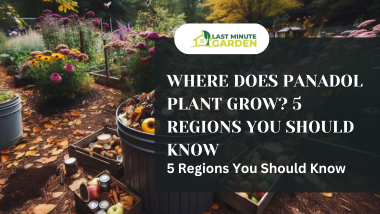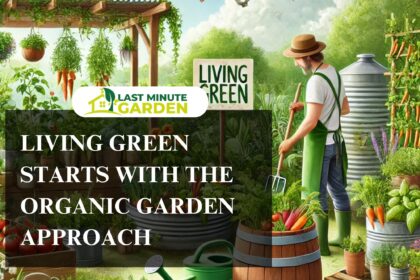Looking to enrich your garden without emptying your wallet? Uncover the best spots offering free organic compost near me—great soil doesn’t have to be pricey!
Organic compost is like gold for your garden soil, boosting its fertility and structure. It’s rich in nutrients that feed your plants and improve the overall health of your garden. While buying compost can be costly, free organic compost near me options are available if you know where to look.
Here, we’ll explore the best places where you can find “free organic compost near me,” along with tips on what to look for in high-quality compost.
1. Local Community Gardens
Community gardens are a fantastic resource for finding free organic compost. Many community gardens create their compost piles from collected yard waste, food scraps, and plant material.
These groups often have an excess supply, and many are happy to share with local gardeners.
Before visiting, contact your local community garden group or visit their website. Some may have a “give-and-take” system, allowing you to donate compostable materials and take compost in return.
This helps keep the compost cycle sustainable and benefits everyone involved.
What to Look for: Community garden compost is typically fresh and rich in nutrients. Check for a dark color and an earthy smell, as these indicate it’s ready to use in your garden.
2. Municipal Composting Facilities
Many cities and towns operate composting facilities as part of their waste management programs. These facilities accept organic waste from households and yard debris to turn it into compost.
Since these programs aim to reduce landfill waste, they often offer finished compost to residents for free or at a minimal cost.
To find a facility near you, check with your city’s waste management or public works department. Some locations may even have seasonal “compost giveaways” where residents can pick up compost at designated times of the year.
What to Observe: Compost from municipal facilities is usually well-processed and meets quality standards. However, double-check for any large chunks of debris and ensure it has the right moisture level. It should feel slightly damp but not overly wet.
3. Local Farms and CSA Programs
Local farms, especially those that operate community-supported agriculture (CSA) programs, are a valuable resource for organic compost. Farmers frequently have leftover plant matter, manure, and yard clippings they convert into compost.
Some farms give away their surplus for free, especially if it helps them clear space for new material.
To connect with local farms, visit your farmer’s market or CSA. Many farms are part of these communities and might offer composting resources directly to local gardeners. Even if a farm doesn’t have compost available, they may refer you to other local resources.
What to Look for: Farm compost tends to be nutrient-rich and organic. Since farm compost can sometimes include manure, make sure it’s been well-aged to avoid any harmful pathogens that could damage your plants.
4. Landfills with Composting Programs
Surprisingly, landfills can also be a source of free organic compost near me. Many landfill facilities have composting programs that process yard waste, food scraps, and other organic materials collected from the community.
These composting areas help landfills reduce waste volume, manage methane emissions, and repurpose materials that would otherwise contribute to landfill size.
Landfill compost programs often produce large quantities of compost, which they sometimes make available to residents for free or for a small fee. To find out if your local landfill offers compost, check with their administrative office or visit their website for details.
What to Observe: Landfill-produced compost can be high quality, but you’ll want to inspect it for any signs of contamination. Look for a dark, crumbly texture and avoid any compost with visible debris or an off-putting odor, as these are signs it might not be fully processed.
What to Look for in Free Organic Compost
When sourcing free organic compost near me, quality is key. Here are some guidelines to help you choose compost that will benefit your garden the most:
- Appearance: Good compost is dark brown or black and has a crumbly, soil-like texture.
- Smell: Quality compost should have an earthy smell. Avoid any compost with an ammonia or sulfur odor, as these suggest that it’s either not fully composted or has been contaminated.
- Moisture Level: Compost should be moist to the touch but not overly wet or dry. Too much moisture indicates poor storage, while overly dry compost may not support essential microbes.
- Contaminants: Be cautious with any compost that might contain traces of herbicides or pesticides. Many persistent herbicides used on feed crops don’t break down easily, even in compost.
Tips for Getting the Most from Free Organic Compost
Once you’ve sourced your free compost, a few steps will help maximize its benefits:
- Screen for Debris: Sometimes, free compost may contain small debris like twigs or wood chips. Sift through it with a mesh screen or rake to remove unwanted particles.
- Blend with Your Soil: Before planting, mix the compost into your garden soil at a ratio of about 1 part compost to 3 parts soil. This will help improve soil structure and make nutrients more accessible to your plants.
- Store Properly: If you’re storing compost for later use, keep it covered to maintain its moisture level and prevent it from drying out.
- Use as Mulch: Compost also makes excellent mulch. Spread a layer around your plants to retain moisture, suppress weeds, and feed your soil over time.
Conclusion
Accessing free organic compost is easier than you might think, especially when you know where to look. Local community gardens, municipal composting facilities, nearby farms, and even landfills can be treasure troves for organic compost.
Using these resources, you’ll enrich your garden soil without spending a fortune, ensuring your plants have the nutrients they need to thrive.
Building a healthier garden doesn’t have to be costly or complicated. With free organic compost, you can improve your soil’s fertility and create a sustainable garden ecosystem. Happy composting!





